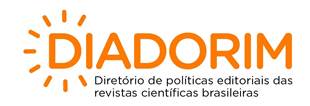Temporomandibular disorder changes cervical muscle strength in young adults?
Views: 531Keywords:
Temporomandibular Disorder, isometric contraction, flexor strength, extensor strengthAbstract
Introduction: Literature indicates relationships between temporomandibular disorder (TMD) pain and disability related to the cervical spine, but studies evaluating the strength of cervical muscles, especially in young adults, are still scarce. Objectives: To evaluate cervical muscle strength in young adults with and without temporomandibular disorder. Materials and Methods: This study included young adults aged 18 to 25 years from a private university, both with and without a diagnosis of TMD, and in generally good health. Individuals with neck/head trauma; disc herniation and degeneration; systemic diseases such as fibromyalgia, lupus; pregnancy; or anesthetic block in the last 3 months were excluded. Those scoring >50 points on the Fonseca Anamnestic Index questionnaire were considered to have TMD. The Neck Disability Index was used to assess the level of disability related to cervical spine pain. Cervical muscle strength of the flexors and extensors was measured by maximum isometric voluntary contraction using a handheld dynamometer, model 2201163, Lafayette, IN, USA. A significance level of <0.05 was adopted. Results: A total of n=64 individuals were evaluated, with n=30 in the TMD group, averaging 20 to 22 years of age, with moderate TMD being the most observed (n=34, 53%). A reduction in muscle strength was identified in the TMD group compared to the non-TMD group for all movements, with a significant difference for the flexion movement (p<0.05). Conclusion: Individuals with TMD show lower muscle strength for all cervical spine movements compared to those without the condition, with this difference being significant for the flexion movement.
Keywords: (Temporomandibular Disorder, isometric contraction, flexor strength, extensor strength)
Downloads
Downloads
Published
How to Cite
Issue
Section
License
Copyright (c) 2024 Geovanna Alves, Josmayara da Silva Caldas, Thayllane Costa Cardoso, Camila Vitória de Moraes Costa, Rodrigo Sousa Andrade, Matheus Rafael Feques Ferreira Nogueira, Ryan Pinheiro Castro, João Pedro da Fonseca de Paula, Gustavo Weyber Pereira Alves, Maria Claudia Gonçalves (Author)

This work is licensed under a Creative Commons Attribution 4.0 International License.












